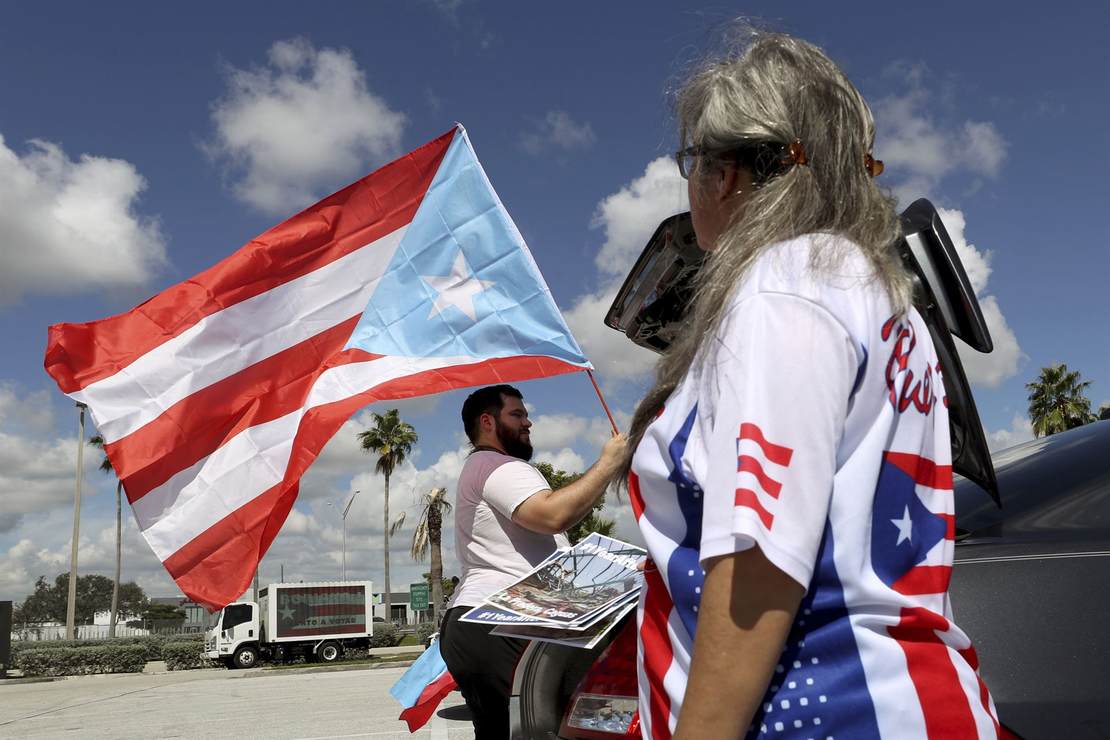Fifty is a nice, round number. It looks good: “The 50 States of the United States.” I can vaguely remember when it was the “good ole’ 48” states. And then Alaska and Hawaii entered the union and 48 became 50. Back then, we all looked around and didn’t see any more room for a state. The U.S. was full up and we posted a “no vacancy” sign.
But “50” is not set in stone. There was always that holdover from the American imperial era, Puerto Rico. Following the end of the Spanish-American War, the U.S. military basically just stayed there, eventually giving the people the rights of a territory. At the time, there were other territorial governments in addition to Hawaii and Alaska in New Mexico and Arizona.
At first, the Puerto Rican people wanted independence. The first vote in 1914 was overwhelmingly in favor of the territory declaring itself an independent state. But Congress nixed the plan and that’s where the matter has rested until today.
There have been five referendums since 1967 asking Puerto Ricans if they want to be a state, declare independence, or remain a territory. The question of independence has also been debated several times in the last few decades, most recently in 2017.
Statehood has usually won these referendums but by narrow margins. The vote in 2020 for statehood or remaining a territory was 53-48, which has precipitated a movement by Democrats in Congress to vote on the island’s status.
The issue of statehood has been given a sense of urgency as the island continues to struggle in recovering from Hurricane Maria in 2017. Many residents believe that statehood would have gotten them more aid sooner. That’s debatable, but it’s clear that the island could use the extra financial help statehood would bestow.
This week, Florida Representative Darren Soto, a Democrat; Delegate Jenniffer González-Colón, the island’s resident commissioner, a Republican; and Senator Martin Heinrich of New Mexico plan to introduce a measure in the House and Senate granting Puerto Rico immediate statehood.
“They have finally decided that enough is enough, that their territorial status and second class citizenship isn’t working and it’s time for change,” Soto told reporters.
But the bill contradicts a proposal written by Puerto Rican Representatives Nydia Velázquez and Alexandria Ocasio-Cortez last summer. The two outlined a panel of elected delegates who would decide what the best long-term solutions would be for the island, giving the options of independence or a statehood or territory status. Ocasio-Cortez wrote in an opinion piece on NBC News at the time that the island’s residents should determine for themselves if they want statehood. “The key is that this framework would be developed by Puerto Ricans and for Puerto Ricans, not dictated to them like so many previous policies,” the two wrote.
That proposal received an immediate thumbs-down from pro-statehood advocates who think it would dilute the statehood vote.
What these referendums have shown is that Puerto Ricans are nowhere near united in envisioning their future. The vote for remaining a territory is always strong because many on the island recognize that without a consensus for statehood or independence, the island would be hopelessly divided. Standing pat, for now, appears to be a viable option.
Of course, you can’t escape the Electoral College implications. Puerto Rico would be eligible for five House seats and two Senate seats. But there is a complicated formula that would determine which states would have to lose a seat with the addition of Puerto Rico into the union. By law, the House is set at 435 seats, so seats would have to be taken from five states to accommodate Puerto Rico. The Senate would grow by two seats making the magic number in the electoral college 271.
The Republican Party is not invisible in Puerto Rico and could be competitive. It’s by no means a certainty that Democrats would dominate as they would in the state of “New Columbia” — or, “State of Washington, Douglas Commonwealth” depending on what name they choose if D.C. becomes a state.
Still, few would argue that making both D.C. and Puerto Rico states wouldn’t give an advantage to Democrats. This is why Republicans will do all in their power to block statehood for both. When the margin is razor-thin, any advantage might tip the balance against the GOP and lead to many years of wandering in the political wilderness.
It’s unfortunate that the aspirations of people in Puerto Rico and Washington, D.C., should be held hostage by national political circumstances, but that’s the reality they must deal with if they’re to learn to live as a state in the union.

